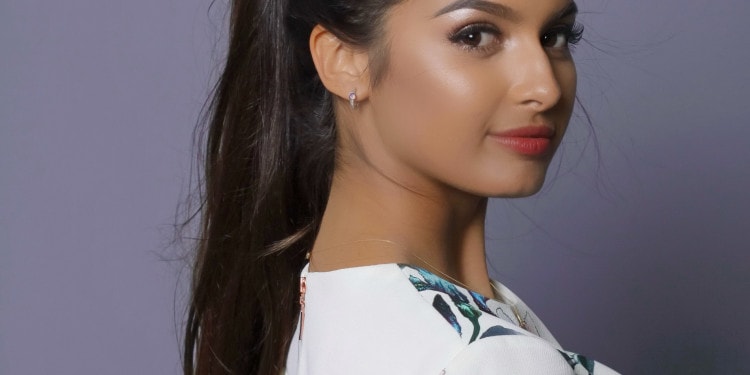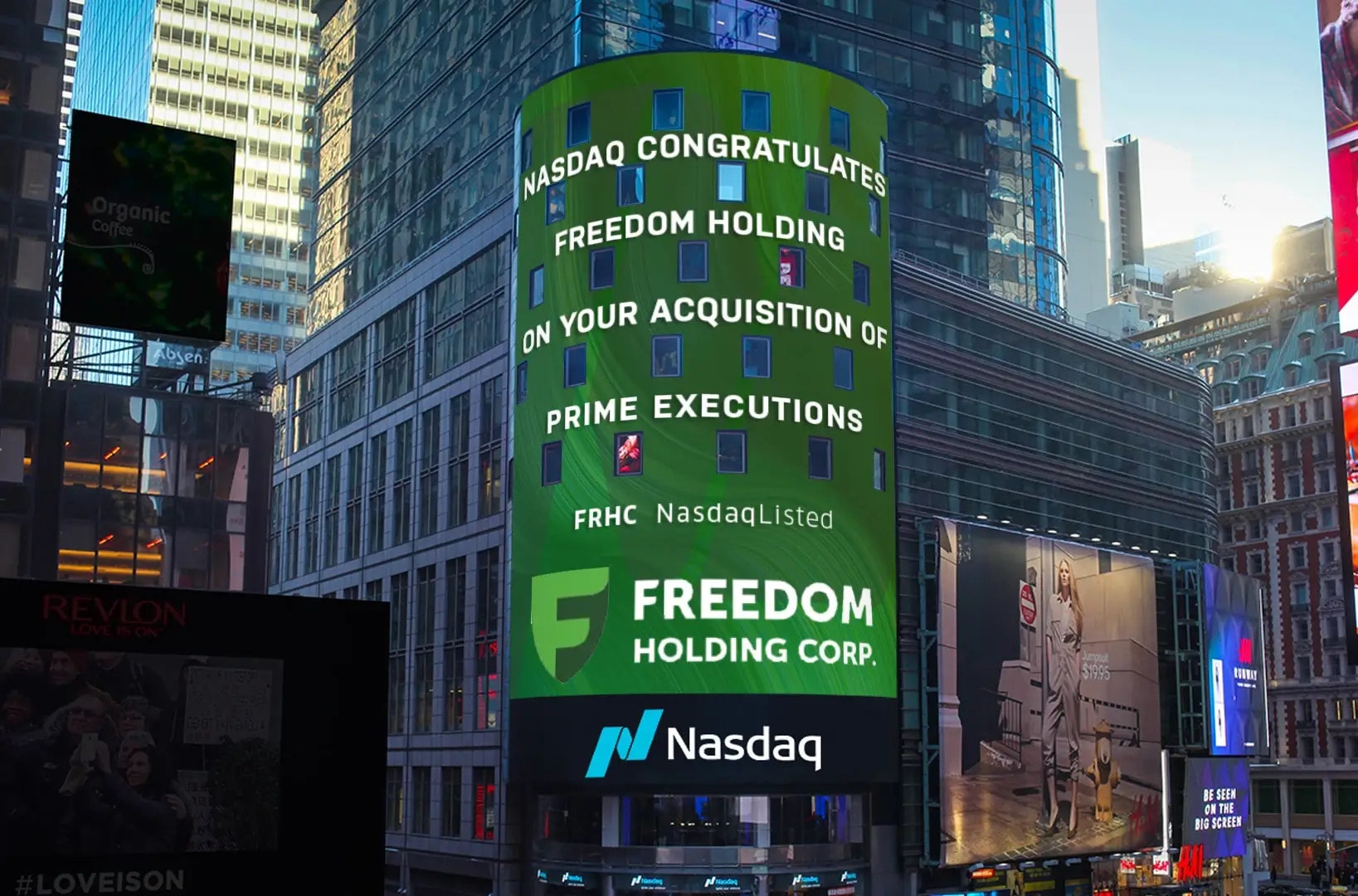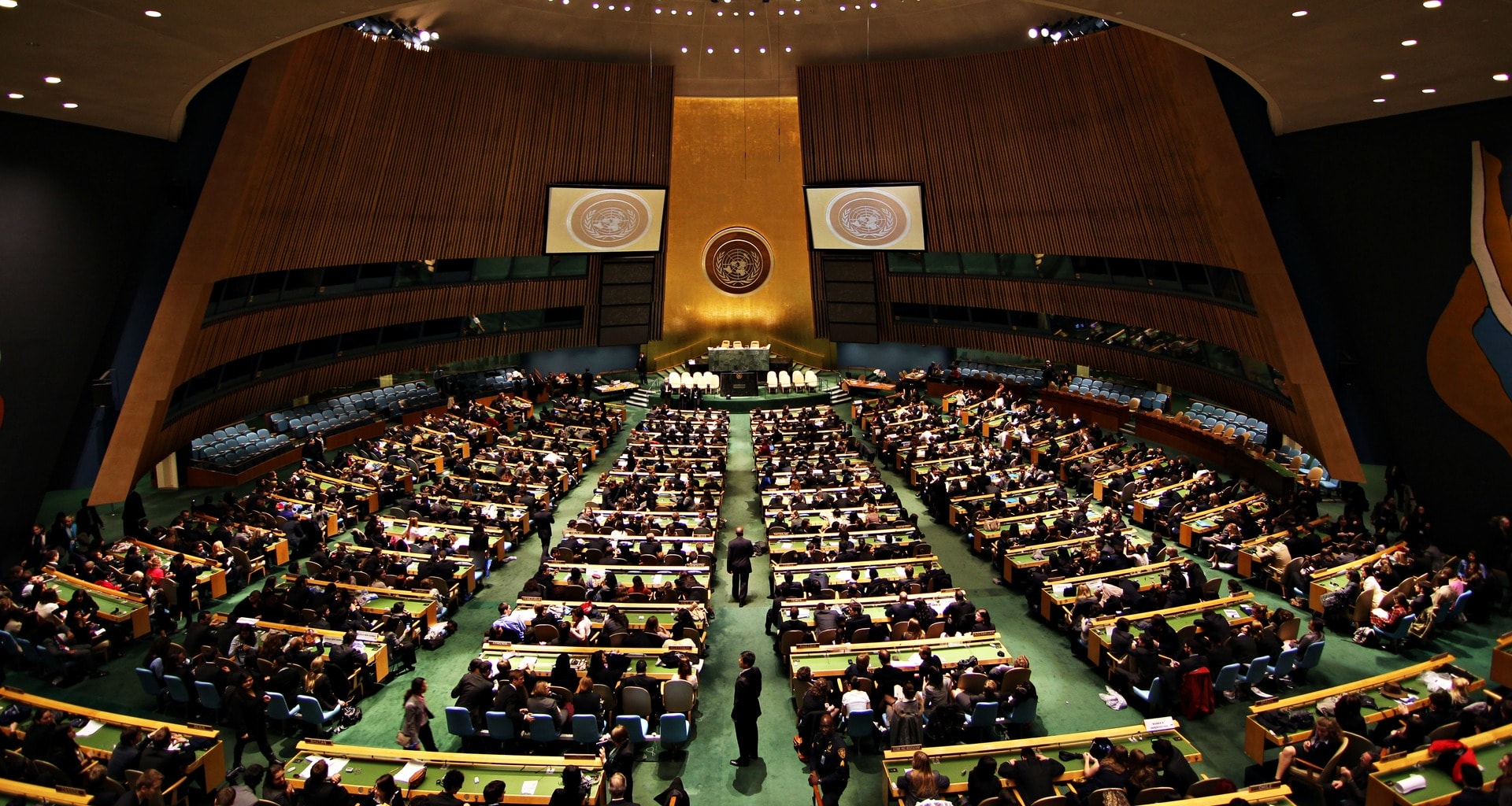The jewelry industry is highly fragmented with a mix of a few large, branded companies interspersed with many family owned firms of all sizes that do business throughout the world. It includes the mining, distribution and manufacturing of precious metals, gems and jewels. This diversity and fragmentation in the supply of precious materials and the production of finished jewels presents challenges that few industries have. Luca Jouel is an ethically sourced, Australian fine jewelry brand creating heirloom quality fine jewelry for the sophisticated modern client. Founded in 2010 by gemologist Tereena Lucas, Luca Jouel is standing up to the industries’ procurement challenges and showing how being profitable does not come at the cost of shedding responsibility.
I spoke to Tereena to find out more:
Q. How has the mission of Luca Jouel evolved since its founding?
Luca Jouel was founded on the desire to create quality, responsibly sourced and ethically crafted fine jewellery intended to be treasured over the long term, and this continues to be our mission. Our collections feature both the finest quality diamonds and gemstones as well as lower quality stones that are both unique and aesthetically pleasing.
Beauty is not always about perfection and our pieces aim to celebrate and showcase both the finest of the fine and also the natural beauty of gemstones. In acquiring the elements for our pieces, Luca Jouel is committed to the legitimate and ethical sourcing of materials, and maintains a policy of dealing only with companies who demonstrate that same commitment to ethical trading and warrant their own reputable supply chain and general business conduct.
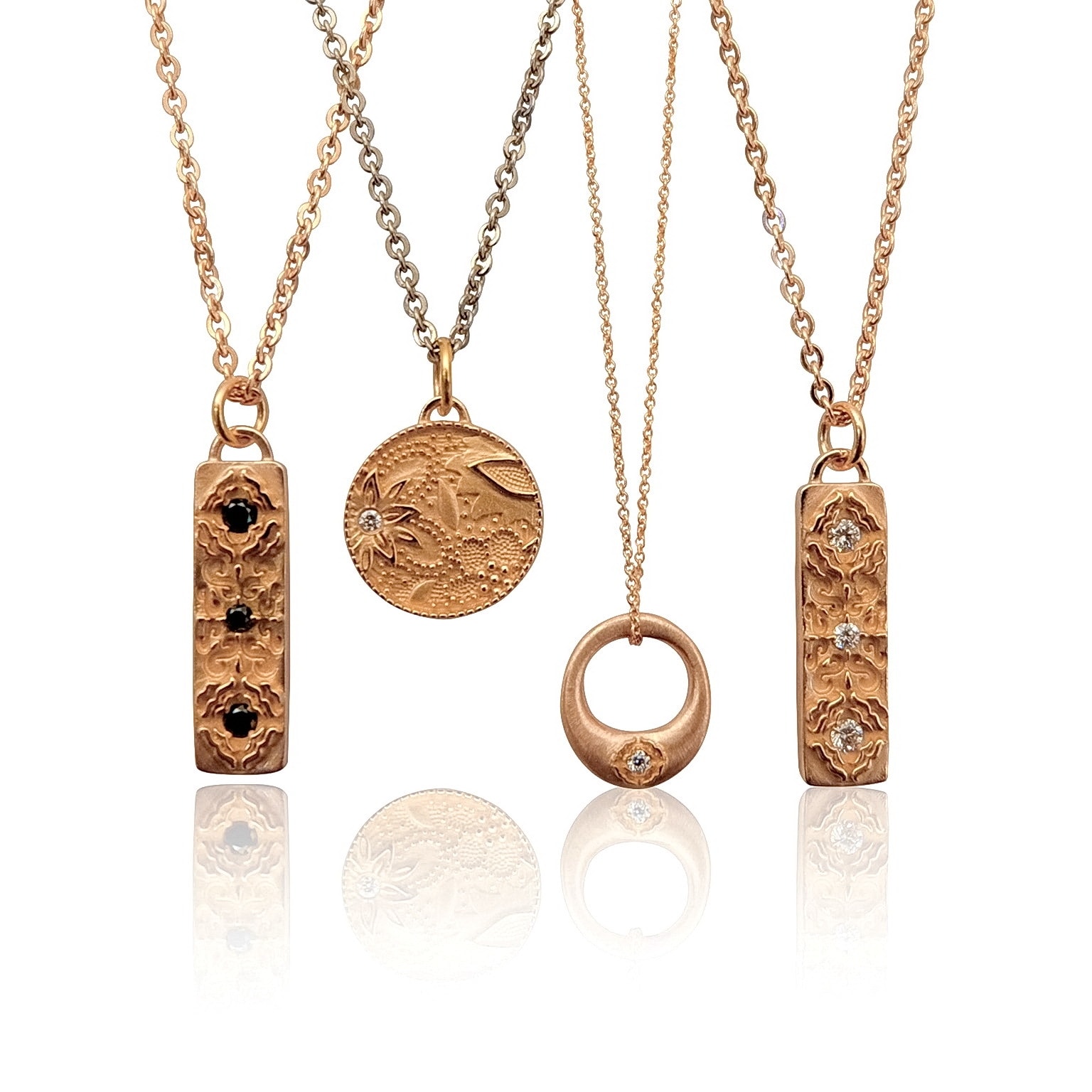
In the photo: Talismans and necklaces by Luca Jouel Credit: Luca Jouel
Q. Why sustainability and what does sustainability mean for you?
If we do not have environmental health, then this will ultimately translate to suboptimal or poor health for all of us, people and animals. Since an early age, I have developed a particular interest in the consequences of environmental chemical contamination. This started with knowledge of biologist Rachel Carson’s work, especially her book Silent Spring, and then, the work of environmentalist Theo Colborn. I was completely fascinated by findings that the chemicals being released into the environment were interfering with the hormonal systems of humans and animals. To this day there seems to be a pervasive belief that because many chemicals are used or included in products in low doses that their effect on people, animals and the environment is negligible. In fact, a major tenet of toxicology is that it is the ‘dose that makes the poison’, however there is evidence to the contrary that low doses can indeed cause the exact endocrine disruption that Carson first acknowledged with disturbing consequences now known for reproduction and development.
Dose is but one variable determining chemical toxicity and with respect to people, it is also important to take into account the effects of exposures across different life stages in people who have differing histories of previous exposures and differing occupations and lifestyle practices, as well as the synergistic effects of chemicals and individual differences in chemical metabolism capabilities which are becoming more understood with further advances in individual genetic profiling.
I have a background in holistic healthcare as a naturopath, with degrees in molecular biotechnology and pathology and have been involved in research investigating the molecular characterization of hypospadias, a congenital condition in boys where the urethra does not fully form. Rates of hypospadias have increased globally over the past 60 years, estimated to affect 1 in every 125 boys, and it is actually reproducible in animals with administration of specific chemicals or combinations of chemicals…. which means that all fingers point in the direction of endocrine disruption being the causal factor.
This topic is of express personal interest to me as my twin boys were actually born with varying degrees of hypospadias. It is however an extremely important issue with relevance for us all as toxic chemicals and chemicals able to adversely influence hormonal systems are very often involved in many processes of making clothing and accessories, cosmetics and other personal care items. As my personal story highlights, the effects on people and our shared environment are very real.
Sustainability to me therefore means trying to live one’s life and engage in our individual passions and careers, businesses, employment or other pursuits in the most conscious ways possible. This means constantly asking questions of yourself, learning, staying informed and being accountable. It does require a proactive approach and considering oneself as a member of our world community as opposed to being passive and insular. It is the realization and acceptance that your actions do have impact, maybe not immediate impact, but most certainly a cumulative impact with a ripple effect. I feel there are no other options for us all going forward but to act in a sustainable manner and respect our finite planetary resources if we value our health and that of our children and animals. And this is generally not the easiest route; sometimes it means saying no to some opportunities for the greater good and all round being conscious of every decision you make.
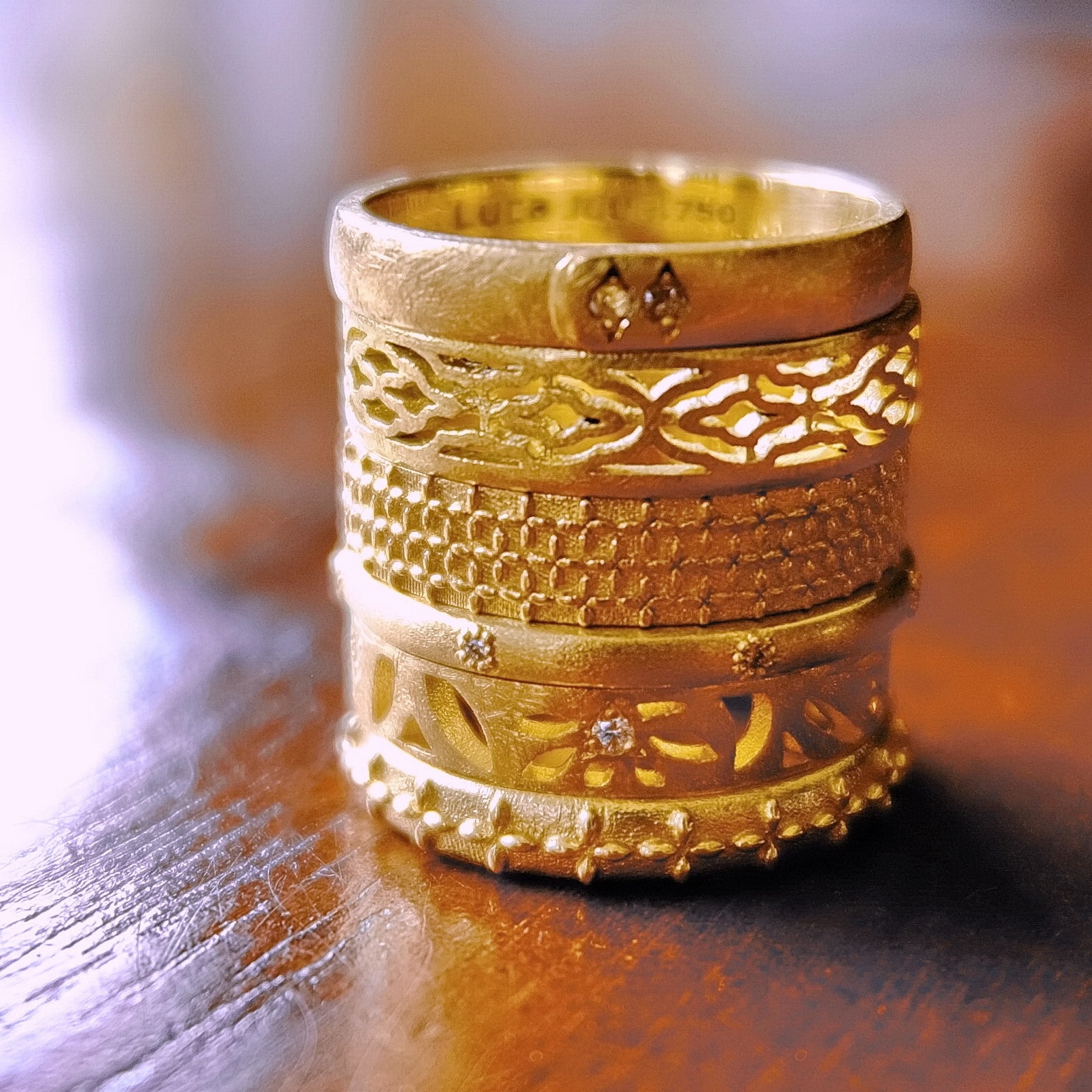
In the photo: Gold rings Credit: Luca Jouel
Q. How is Luca Jouel able to stick to its core values of doing good while staying competitive? How does your business model support sustainability?
Luca Jouel is very proud to be a member of the Positive Luxury community of luxury brands bearing the prestigious Butterfly Mark, the sole trust mark in the luxury industry today. Positive Luxury was founded by Diana Verde Nieto and Karen Hanton MBE. Diana started with the idea of trying to create a way to inspire people to buy better and also to influence brands to do better. Luca Jouel has been awarded the Butterfly Mark in recognition of our commitment to ethical and sustainable business best practice.
I love the concept underlying the Butterfly Mark and believe it is particularly clever in its practicality because consumers are able to easily recognize brands that care and that are part of the solution to drive positive change globally. While the need to stay competitive is certainly ever present, there is a growing appreciation among well-informed consumers as to the actual costs involved, both monetary and time, for companies like ours that are committed to making luxury goods not only of the finest quality, but also that have been created with heart, with accountability to people and our environment. This appreciation of course has not filtered to everyone on our planet as yet, and for a number of very real economical or other social reasons… but the movement is in process now and the future looks optimistic for an overall shift in consumer values. As a member of the Positive Luxury community we are pleased to attract a clientele that appreciates the efforts we have gone to.
As a boutique fine jewelry brand, we specialize in made to order pieces and do not hold a lot of stock. We offer jewelry over a fairly wide price range too in order to cater to as many people as possible. The people in our supply chain adhere to policies that do not take advantage of the people in their employ, and processes designed to limit their environmental impact. The principle specialist manufacturers we engage are members of the Responsible Jewellery Council and also follow sourcing procedures that are fully compliant with the LBMA Responsible Gold Guidance and OECD Due Diligence Guidance for the Responsible Supply Chains of Minerals. We also use diamonds that have been purchased from legitimate sources not involved in funding conflict and in compliance with United Nations resolutions and the World Diamond Council System of Warranties. Our colored gemstone suppliers also warrant that they have been sourced responsibly. Our packaging has also been thoughtfully designed where we have opted for handmade sustainable bamboo boxes that are not overly branded so that they can be repurposed as keepsake or trinket boxes.
Q. Where do you see the direction of Luca Jouel heading? Are there any challenges or milestones that you foresee?
I would like to further hone Luca Jouel’s offering to increase the focus on really catering to women and men who are looking for a personal favourite piece of adornment. Something they find unique and special and that they intend to keep and perhaps pass on in their family. Going forward our greatest challenges will continue to be increasing our sales, monitoring and optimizing our supply chain, and in acquiring sufficient resources to grow and promote Luca Jouel as a boutique concern in a competitive luxury marketplace which would obviously be beneficial to our whole team of suppliers, designers and jewellers.
Q. What message does Luca Jouel have for other companies focused on supporting their local communities?
At the most fundamental level, we simply advocate being kind and doing the right thing. Brands have a responsibility to ensure that they are helping and not harming. The fashion industry as a whole has enormous power to change the lives of millions of people for the better by acting responsibly with regards to safety, by paying fairly and by working with communities compassionately. If companies are focused on supporting their local communities, then initiatives could include the following:
- providing skilled artisans with a sustainable income;
- providing training to unskilled women and men so that they can earn a sustainable income;
- provide support for children to have access to higher education in general;
- provide training, mentoring and counselling to women and men specifically in areas such as leadership, financial literacy, legal literacy, health and safety, work-life balance and freedom from harassment;
- provide or subsidize quality child care;
- provide support for local charities.
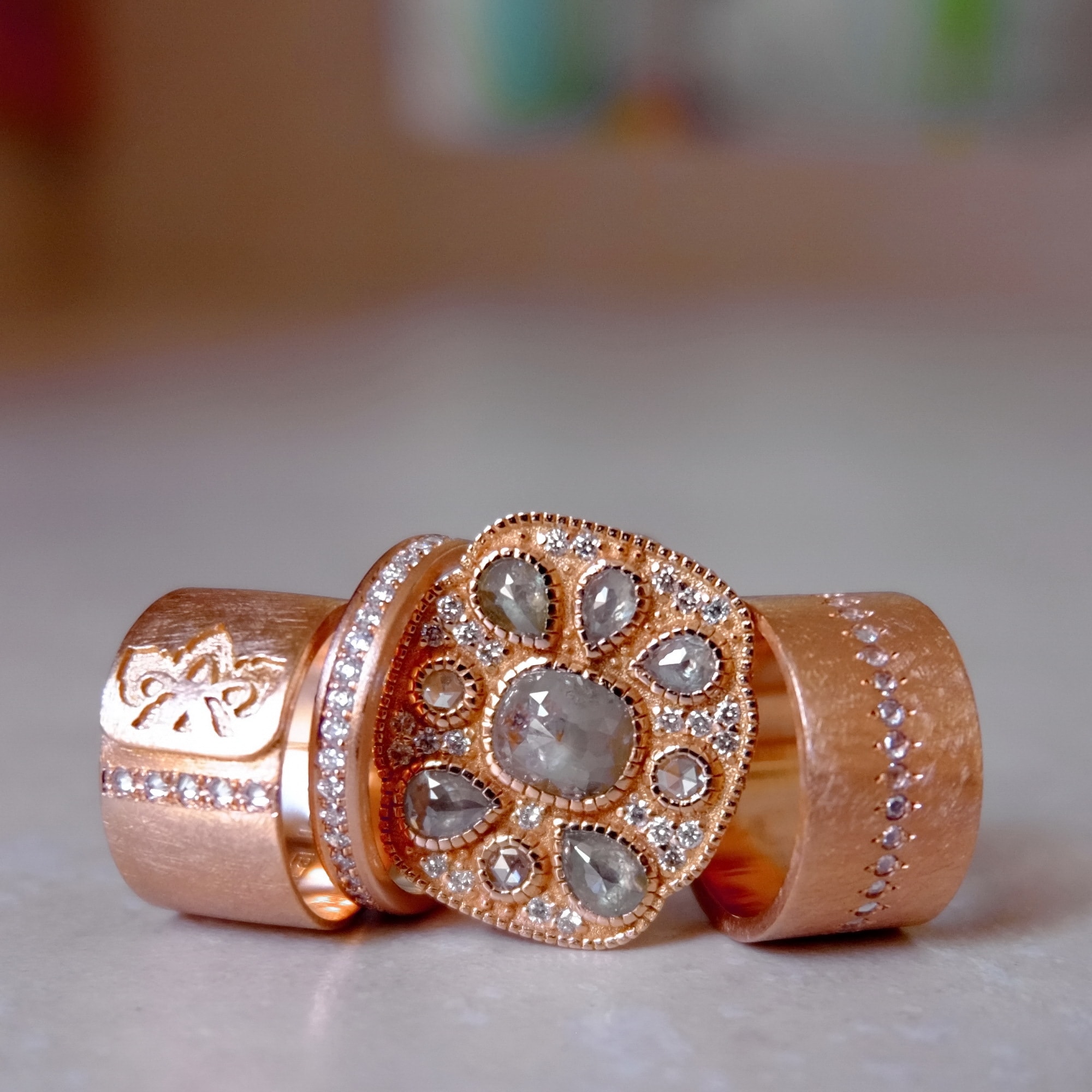
In the photo: Luca Jouel handcrafted rings Credit: Luca Jouel
Q. What is the future of sustainability? What can the average person do to support sustainability?
Sustainability is continuing to grow as an issue of paramount importance globally. More and more businesses and consumers are engaged in thinking about how they can create, sell and purchase goods that have been thoughtfully conceived with respect to their impact on people and our environment.
Going forward I think it is important to continue to help people make this connection and not in a way that creates feelings of guilt or promotes judgement, because that can often have the adverse effect of leaving them feeling powerless and in a state of relative inertia – but instead in a way that ignites people’s passion to be proactive and to live their lives with a sense of appreciation and gratitude. Everyone likes to feel good and have a sense of community and purpose and achievement. I believe that is the way long term behavioural changes can ultimately be realized. With that, people can get involved by doing their part as responsible business owners and consumers, by recycling, using natural and sustainable materials, researching, asking questions, and becoming more informed. In this age of technology, individual people actually wield quite a lot of power through their various social media networks which can be utilized to make their voices heard and influence companies to improve their commitment to sustainable business practices also.
Editors Note: The opinions expressed here by Impakter.com columnists are their own, not those of Impakter.com


